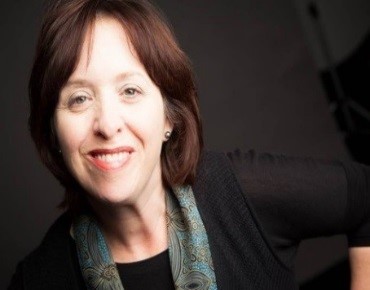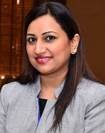7th March 2017 Delhi, India
Women in STEM: closing the gender gap
Growing up in Australia, like all kids, I was curious and inquisitive about the ‘science’ behind things. Encouraged by a school teacher mother and an engineer father, I coveted a plastic microscope and a chemistry set. But, like many other kids, I lost confidence in my abilities in science and maths.
Growing up in India, Leena was under great pressure from her parents to become a doctor or an engineer for the occupational prestige. But, clearly she had her heart set on other things.
We know, now, that from a very early age girls (and boys) pick up on subtle signals about what they should and shouldn’t be doing at school. And often we think of maths and science as being something only the best should do. That it’s not good enough to be only good or average. The message that girls aren’t as good as boys at maths and science is persistent – but many researchers and Australia’s own Chief Scientist, Dr Alan Finkel, have shown, it’s also completely wrong.
Leena and I are delighted to be doing our bit to get girls interested in science, maths and engineering – recognising the importance of these disciplines to future technological change and therefore economic productivity and national and global well being. We need everyone, at every level of ability, to engage with maths and science to maximise our future opportunities. As an Australian Minister once said, it’s like a cricket game. You can’t win the game by leaving half the team in the shed.
Last year, I visited New Delhi to participate in a trilateral workshop convened by the Australian, Indian and UK governments to discuss our respective approaches to supporting gender equity in STEM (science, technology, engineering and math). The workshop brought together a group of scientists, entrepreneurs and policymakers from the three countries and we learned a lot from each other. The Australian and UK delegates also got to learn from India – through visits to Miranda House – the successful women’s college at the University of Delhi –and by participating in a lively panel discussion with the girls of St Thomas’ School. I also had the chance to meet some of the female Indian researchers working in agricultural research projects supported through the Australia-India Strategic Research Fund, and contributing their knowledge to breakthroughs in food storage and pest management.
Australia, India and the UK face a common challenge: while increasing numbers of women have pursued science and technology careers in recent decades, many women scientists and entrepreneurs still face obstacles that limit their ability to contribute their knowledge and talent to national well being. These obstacles spring from societal beliefs, biased learning environments, negative stereotypes and other factors. These issues can deter girls from studying STEM and lower the performance of the ones that do.
Through the workshop, the speakers and participants– heads of government departments, world leading entrepreneurs, diplomats, bureaucrats, outstanding scientists and mathematicians, data experts and key players in ground breaking gender equity initiatives– all committed to continuing to work together to identify and overcome the barriers that discourage women from studying STEM subjects and embracing a career in STEM.
 Australia is working to increase female participation in STEM through measures under its National Innovation and Science Agenda. The Australian government has committed AU$13 million to encourage girls and women into STEM studies and careers, including as entrepreneurs and innovators. This includes expanding the Science in Australia Gender Equity project (SAGE), establishing a new group of Male Champions of Change for STEM, and launching a competitive grants programme for projects that celebrate female STEM role models and foster interest among girls and women.
Australia is working to increase female participation in STEM through measures under its National Innovation and Science Agenda. The Australian government has committed AU$13 million to encourage girls and women into STEM studies and careers, including as entrepreneurs and innovators. This includes expanding the Science in Australia Gender Equity project (SAGE), establishing a new group of Male Champions of Change for STEM, and launching a competitive grants programme for projects that celebrate female STEM role models and foster interest among girls and women.
SAGE is national program promoting gender equity and gender diversity in science, technology, engineering, mathematics and medicine (STEMM). The SAGE program is based on the UK’s ATHENA Swan Charter, which has proven to be very effective in reducing gender bias.
 Our Male Champions of Change initiative has developed a strategy for men in leadership positions to bring about change on gender equality issues. The group will drive the development and application of tailored strategies to improve women’s career opportunities and pathways in scientific, technical and engineering positions, and in related entrepreneurial and innovative universities, research organisations, firms and industries.In all three of our countries, it is clear that mentors play a key role.
Our Male Champions of Change initiative has developed a strategy for men in leadership positions to bring about change on gender equality issues. The group will drive the development and application of tailored strategies to improve women’s career opportunities and pathways in scientific, technical and engineering positions, and in related entrepreneurial and innovative universities, research organisations, firms and industries.In all three of our countries, it is clear that mentors play a key role.
We heard from amazing women scientists such as Dr Julie Maxton (the first woman to lead the UK Royal Society in its 350 years history), Dr Kiran Mazumdar-Shaw (Biocon Ltd, who was denied the opportunity to work in her chosen profession, built a start up in her garage and now features on the Forbes List of 100 most powerful women) and Professor Veena Sahajwalla (UNSW – who has redefined waste by turning plastics and rubber tyres into green steel). While we’d all love to be mentored by one of these fabulous women, there are many other women scientists and entrepreneurs across Australia, India and the UK who are breaking through those barriers and forging their own STEM careers and are happy to share their experience.
We can build on their success, and help make things a bit easier for future generations of researchers and innovators by encouraging greater gender equity in STEM organisations and industries. For Leena, myself, and our colleagues, it’s a delight to support this important agenda. There is a huge level of interest in India, the UK, and other countries across the world to support greater female participation in STEM. I’m looking forward to working with my colleagues across the three countries on the outcomes from the workshop. When women in science excel, we all benefit!
Guest blog by –
 Jane Urquhart, Head of Science and Commercialisation Policy, Australian Department of Industry, Innovation and Science, Canberra
Jane Urquhart, Head of Science and Commercialisation Policy, Australian Department of Industry, Innovation and Science, Canberra
She is a former diplomat and now Senior Executive in the Australian Public Service. Her responsibilities include science policy, governance issues for science agencies and commercialisation policy.
 Leena Kukreja, Senior Advisor, Science and Technology, Australian High Commission, New Delhi
Leena Kukreja, Senior Advisor, Science and Technology, Australian High Commission, New Delhi
She is responsible for science and innovation policy reporting and liaison with Indian government on the delivery of the Australia-India Strategic Research Fund.
